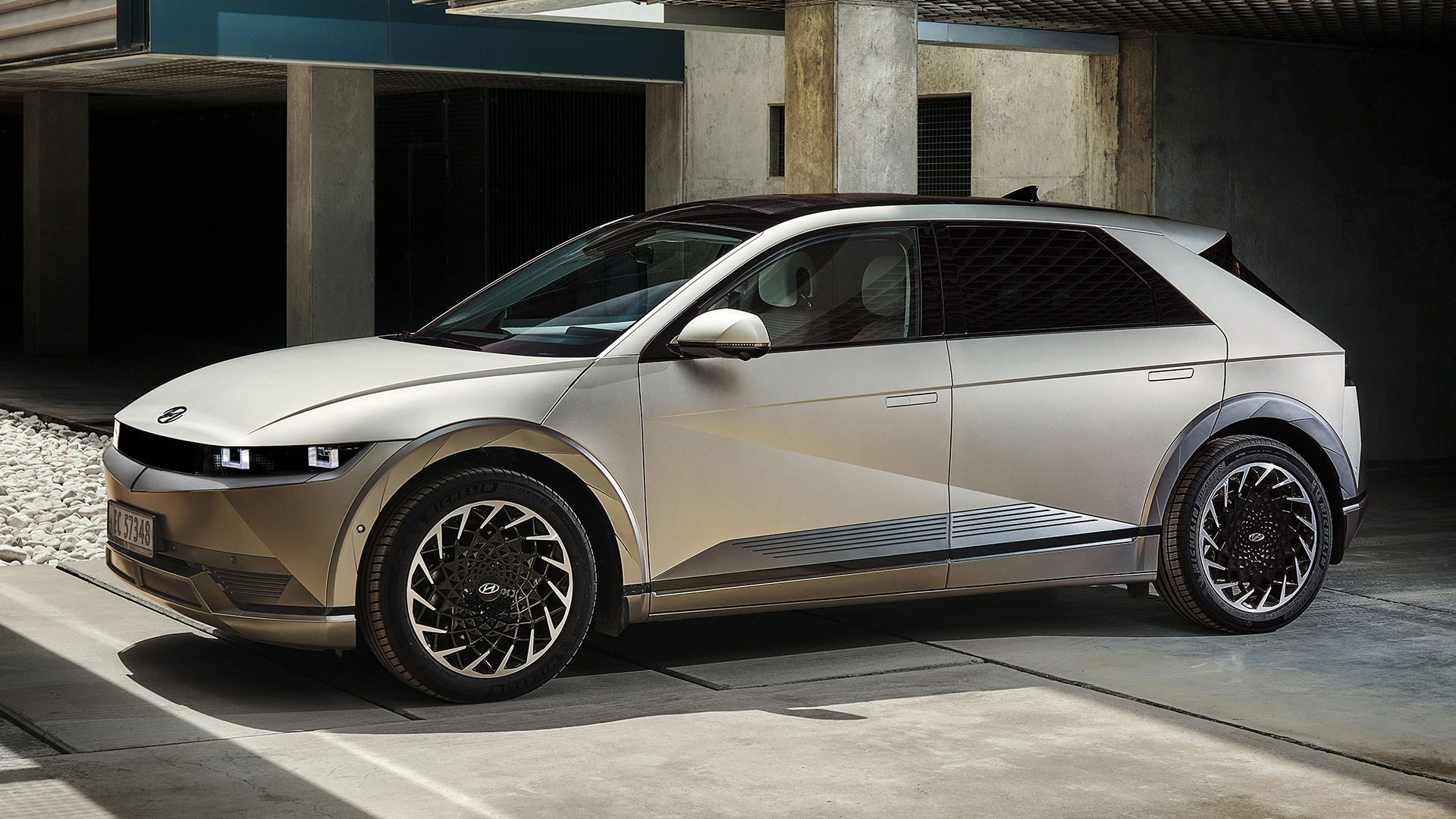

Making the switch from a gas car to an electric one is pretty simple for people who don’t drive far every day. After all, the majority of EV charging is done at home at Level 2 speeds or below. But if the car has go on a long-distance road trip, drivers expect to quickly top off their battery by connecting to a DC fast charger. But what if their brand-new EV can’t do that?
One Hyundai Ioniq 5 owner anticipated this very experience when picking up their new vehicle. However, after bringing the car home and embarking on their first road trip after a month, they realized that their new Ioniq 5 was missing the proper hookup for a CCS charger, meaning their car simply can’t fast charge.

Poster Buttermerck introduced themselves on a Hyundai Ioniq forum asking it if was possible to upgrade their vehicle to accept a Level 3 charger. Almost instantly, they were met with skepticism by owners who simply thought that the vehicle had a cap on the CCS connector that hadn’t been removed, or that they tried to charge with the wrong charging standard. After investigating further and realizing that the actual harness for DC fast charging wasn’t installed, other owners were surprised and thought that the car was improperly assembled at the factory.
As it turns out, that wasn’t the case. What Buttermerck actually bought, unbeknownst to them, was the most barebones Ioniq 5 that’s ever been made: the Essential trim.


Essentially, the 2022 Ioniq 5 Essential was a compliance vehicle exclusively sold in Canada. “Was” is the keyword here because Hyundai discontinued the Essential trim after selling just 30 units for the 2022 model year. Officially, Hyundai told The Drive that it “adjusted [its] packaging strategy for model year 2023 to better meet the demand of Canadian customers.”
When available, the Ioniq 5 Essential was priced at $44,999 CAD ($33,200 USD) before its $1,825 destination fee. That’s $1 below the previous eligibility cutoff limit of Canada’s iZEV credit. In April 2022, the Canadian government increased the bottom line on the iZEV credit purchasing limit to $55,000, meaning that the uber-cheap Essential trim could be off the menu and buyers still be eligible for the iZEV credit.
Now, we’ve talked about compliance vehicles before. In fact, Tesla had an equally bizarre stripped-down edition of its Model 3 with just 94 miles of electric range. The vehicle was also priced at—you guessed it—$44,999 CAD. Tesla has since ceased sales of this model, similar to Hyundai.
The Ioniq 5 Essential lacked a heat pump, a battery heater, and the ability to fast charge—enough trimmed fat to drop the price, which would make higher trims eligible for Canada’s iZEV credit. And after reviewing the archived spec sheet that was once present on Hyundai Canada’s website, it became clear why some people on the forum were confused. Hyundai’s original marketing material for the Ioniq 5 line included charge times for SAE Combo (also known as CCS) charging.
Hyundai outlines its various trims and differences on a product card. A spokesperson for Hyundai Canada told The Drive that the trim features and specifications are “clearly outlined” on the product card, and are “used as the primary source of reference in dealerships for both customers and dealership staff.” The product card indicates that the Ioniq 5 Preferred, which is the next-most base trim, includes “EV Ultra Fast Charger,” but doesn’t explicitly state that the Essential trim could not make use of a CCS charger. This ambiguity likely caused some confusion, especially within the online forums.

On top of getting a raw deal on the charging, Buttermerck also appears to have paid a hefty markup on the Ioniq 5. The original post reveals that they paid $54,000 CAD ($39,900) after the government-backed $10,000 rebate, which puts the price of the vehicle at about $64,000 CAD ($47,260 USD). That’s a whopping $17,176 CAD ($12,683) over the original MSRP of the vehicle before any government incentives.
Now, we get it. Compliance cars shouldn’t have to be a thing and OEMs gaming the system in order to get funding is muddy water. At the end of the day, only the consumer is suffering here, and that’s not a great way to experience EVs for the first time. But Hyundai and the dealer should have made it more clear for this owner. It seems like everyone is a little bit at fault here.
The good news is that it looks like the buyer may be getting some traction to replace the car with his local dealer. A spokesperson for Hyundai Canada told The Drive that Buttermerck was in talks with the dealer, which is currently holding an Ioniq 5 that’s capable of fast charging. It’s not immediately clear if the vehicle will be swapped out for free, or if there will be an additional cost associated with it.
Got a tip or question for the author? Contact them directly: rob@thedrive.com